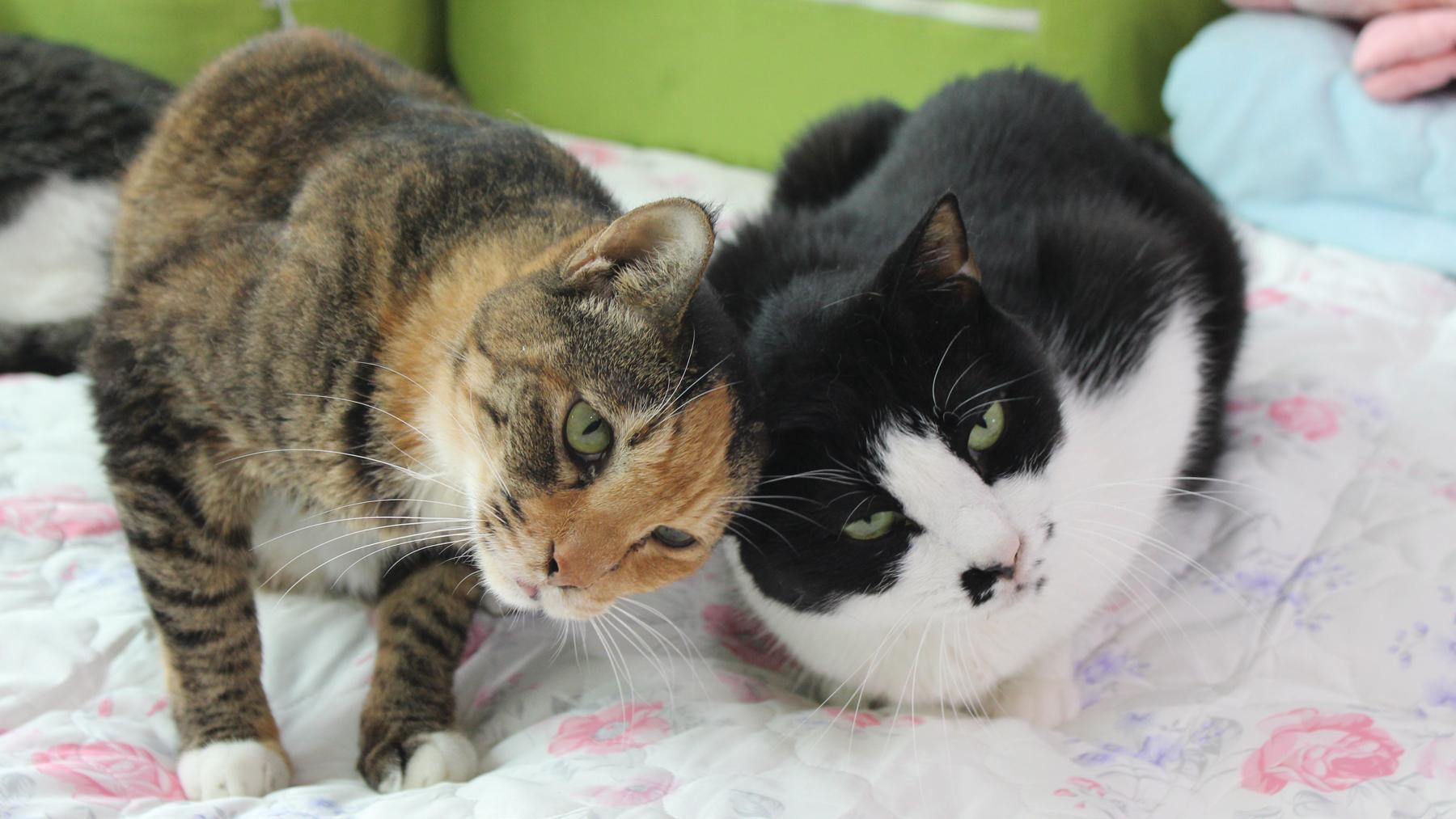It’s meow or never: Seoul’s street cats fight for love
Two cats purr and rub heads in Shiloh’s Sanctuary, an unofficial shelter for street cats in Seoul, South Korea. Cats are associated with bad luck in South Korea, but the city of Seoul is trying to change that.
Hidden away from the hectic streets of Seoul, a cluster of former street cats perched alongside the window and watched pedestrians pass by below. These cats were living in Shiloh’s Sanctuary, a nonprofit shelter on the eighth floor of a quiet apartment complex.
Anne Marie Powless — the sanctuary’s founder — is one of South Korea’s many vigilante animal rescuers in a country where stray cats are still often poisoned, beaten and left for dead because of an age-old stigma. Originally from Canada, she has been rescuing cats in Korea for 15 years and currently cares for 26 cats in total, all of which have been plucked from Seoul’s city streets.
Powless carefully lured one disabled cat into a crate and has taught herself to draw a needle to give it fluids.
“The classical music really calms them down,” she said over the harmony of the piano.
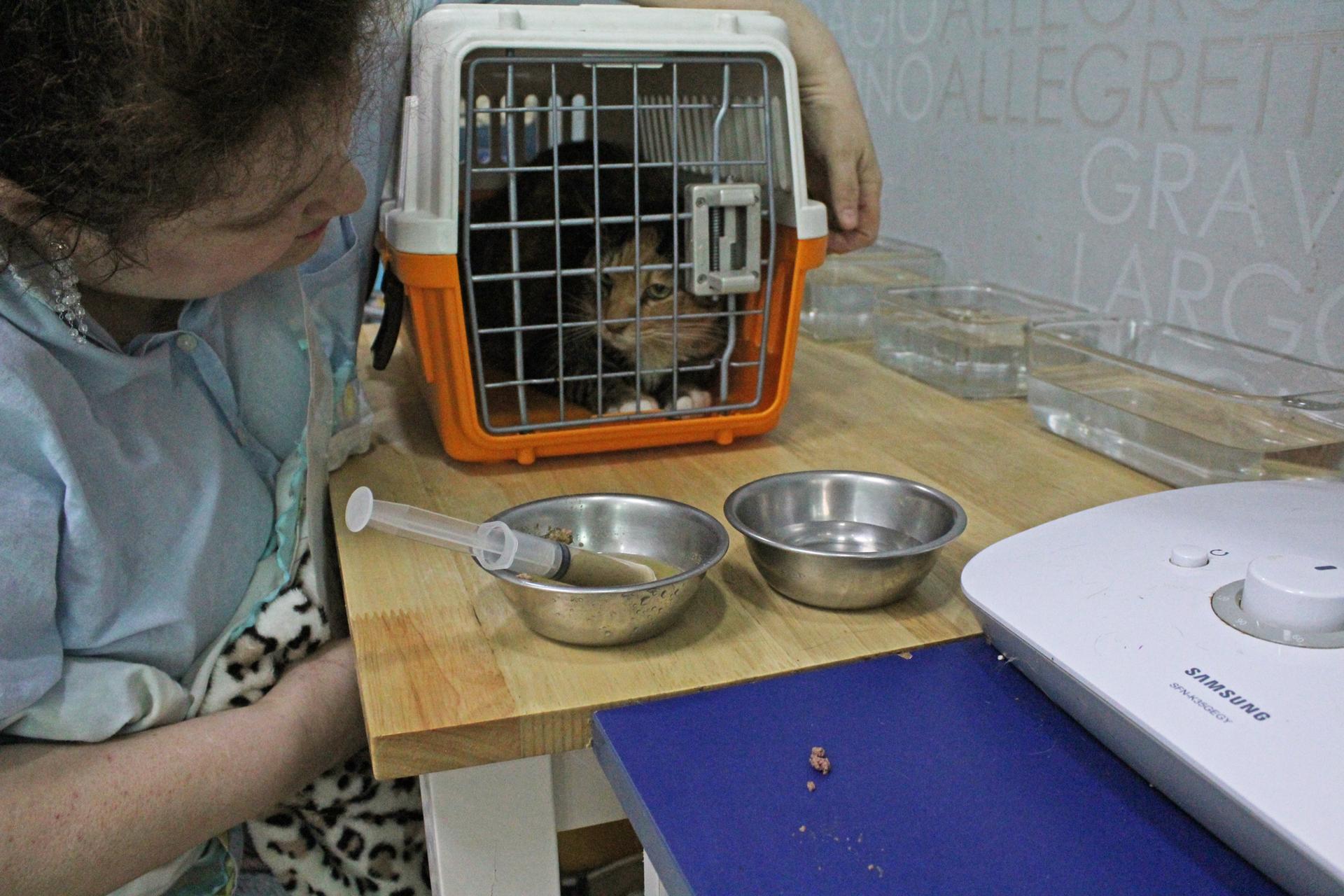
“It’s slowly changing, but there are still a number of people in Korea who hate street cats and don’t understand them. … It’s a lot better than it used to be — it is. But there’s still a lot of fear and misconceptions.”
“It’s slowly changing, but there are still a number of people in Korea who hate street cats and don’t understand them,” Powless says of the stigma against cats. “It’s a lot better than it used to be — it is. But there’s still a lot of fear and misconceptions.”
Related: A Netflix animal rights movie came at a strange time for South Korea
This June, the Seoul Metropolitan Government is wrapping up a 30-day campaign to rebrand and protect South Korea’s estimated 139,000 street cats, which are still being killed like vermin. On May 14, the city launched an online forum to crowdsource ideas on how citizens can better coexist and protect strays. Mayor Park Won-soon may also contribute a few of his own ideas if the campaign gets traction, and there’s hope that viable policy changes are on the horizon — or, at the very least, more citizens will realize the value of Seoul’s strays.
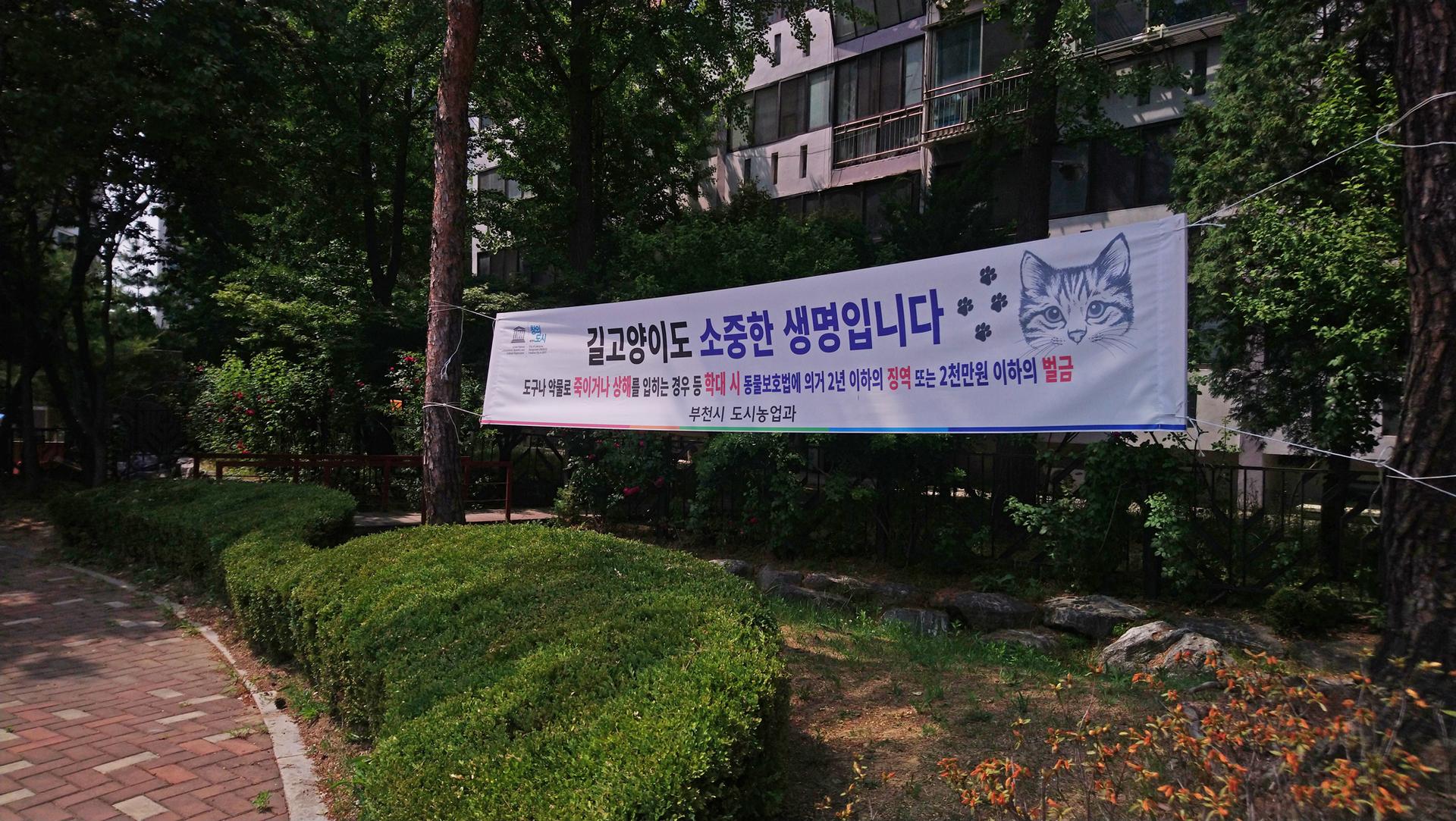
“There’s brightness in the future of animal rights in terms of policies proposed at the Seoul city level,” said Jasper Kim, a lawyer and professor at the Graduate School of International Studies at Ewha Womans University. “I think that the Seoul city mayor has the power to help a lot in terms of raising Korean society’s [consciousness] level in terms of street cats.”
Related: Iraq’s cat lovers find a safe home for their feline friends in Basra
The latest campaign is part of a greater uptrend in animal rights in Seoul, where roughly half of all South Koreans — 25 million people — live. Last March, the Seoul Metropolitan Government released a basic plan that pledged to increase the number of emergency rescue operations, help animal adopters microchip their pets, provide pet insurance enrollment services and build four animal welfare centers around the city by 2023. The Seoul government also established the country’s first Animal Protection Division, stating that it’s “preparing to make a leap in policy.”
“In South Korea, the people’s mindset around street cats has changed and improved a lot,” said Jonga Choi, chairman of the Korean Animal Protection Society. “The government is also changing the law little by little. It’s getting better, but it also has a long way to go.”
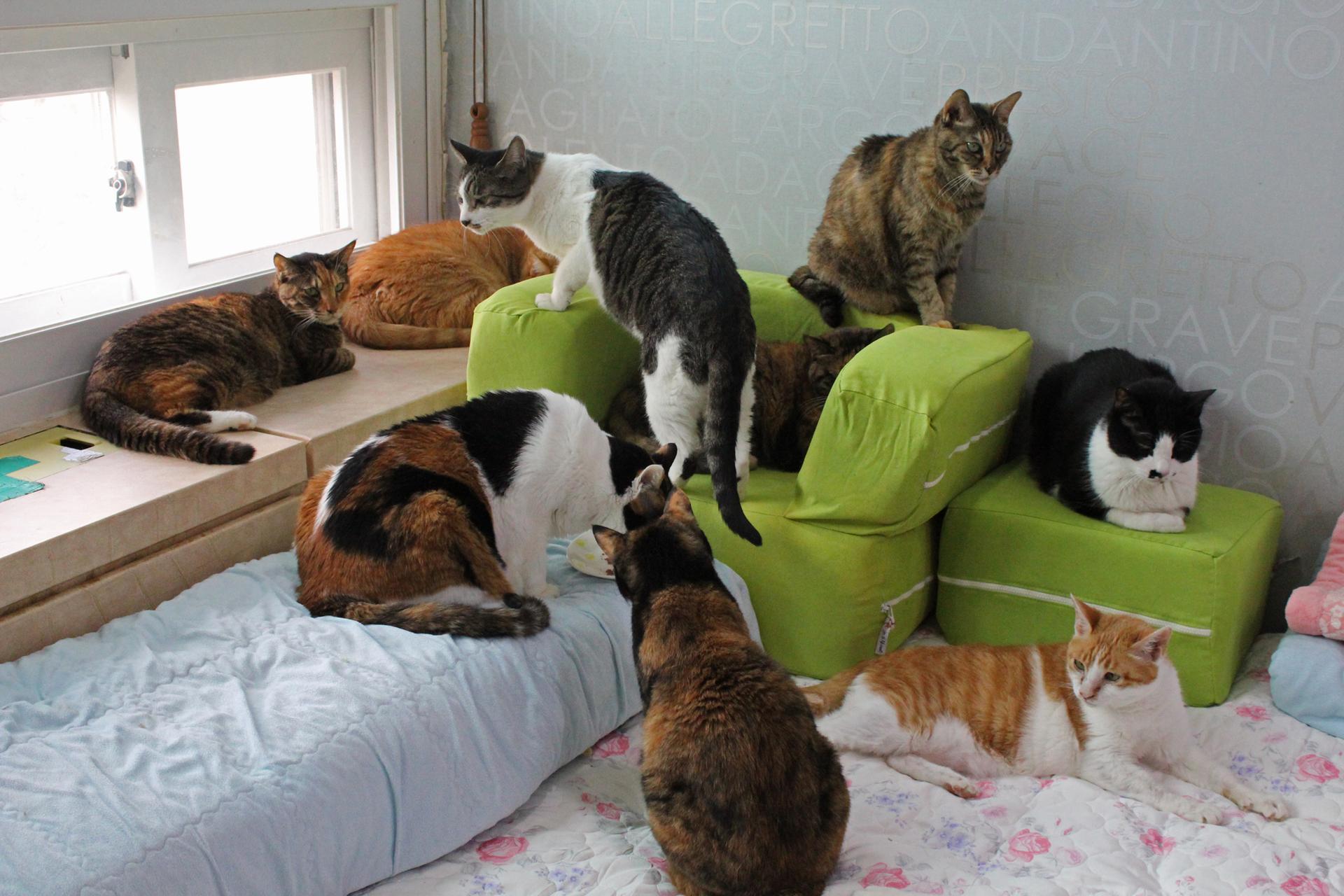
A history of stray cat stigma
Around the world, cats have often been painted as mysterious, devious or even satanic. They’re often the cunning villains in Hollywood films or the foreboding forces of karma that don’t let bad deeds go unpunished. Likewise, Koreans associate cats with bad omens.
“In Korea, cats are culturally associated with bad luck and bad spirits in old folklore. You don’t want to be an animal in Korea, but you especially don’t want to be a street cat.”
“In Korea, cats are culturally associated with bad luck and bad spirits in old folklore,” Jasper Kim said. “You don’t want to be an animal in Korea, but you especially don’t want to be a street cat.”
Though these superstitions may have largely faded, the hard truth is that street cats are often the last priority when it comes to animals in need. As it is, Korean animals are being abandoned at record-high rates in recent years. In 2017 alone, Koreans abandoned around 102,593 pets, according to the latest numbers from the Ministry of Agriculture, Food and Rural Affairs — a 26% increase from 2014. Meanwhile, pet ownership has risen.
Related: Do you really understand the ‘lion in your living room’?
“Animals are being thrown away every year and the number is still rising,” Choi said. “There is also no government-run rescue organization that comes right away when you call them.”
Related: Taiwan bans eating dogs and cats
Poor law enforcement
South Korean veterinarians and other animal advocates still commonly hear about street cats being tortured, poisoned or killed. According to Hwang Cheol-yong, a professor at the Seoul National University of Veterinary Medicine, several cats that students fed on campus were found beaten to death. An autopsy later revealed several fractured bones in the cats’ bodies.
“This happens just far too often,” Choi said. “Most of these perpetrators are impossible to catch, and those who commit these crimes know they won’t be caught. … Some don’t even know they’re committing a crime.”
The South Korean government conducted a major overhaul to animal rights in 1991, with the Animal Protection Act. Since then, the law has been amended with harsher sentences; those found guilty of abusing or neglecting animals can face up to a $16,910 fine and two years in prison.
But even so, those convicted rarely receive the harshest sentence — if any at all. In 2016, a man found guilty of violating the act was sentenced to only 10 months prison (suspended for two years) and 80 hours of community service after boiling 600 street cats alive, for example. In another case, a man posted a video of his dog killing a stray kitten on social media for entertainment and was fined only $592.
“In terms of policy, I haven’t heard anything specifically about street cats. That’s kind of an issue in and of itself,” Jasper Kim said.
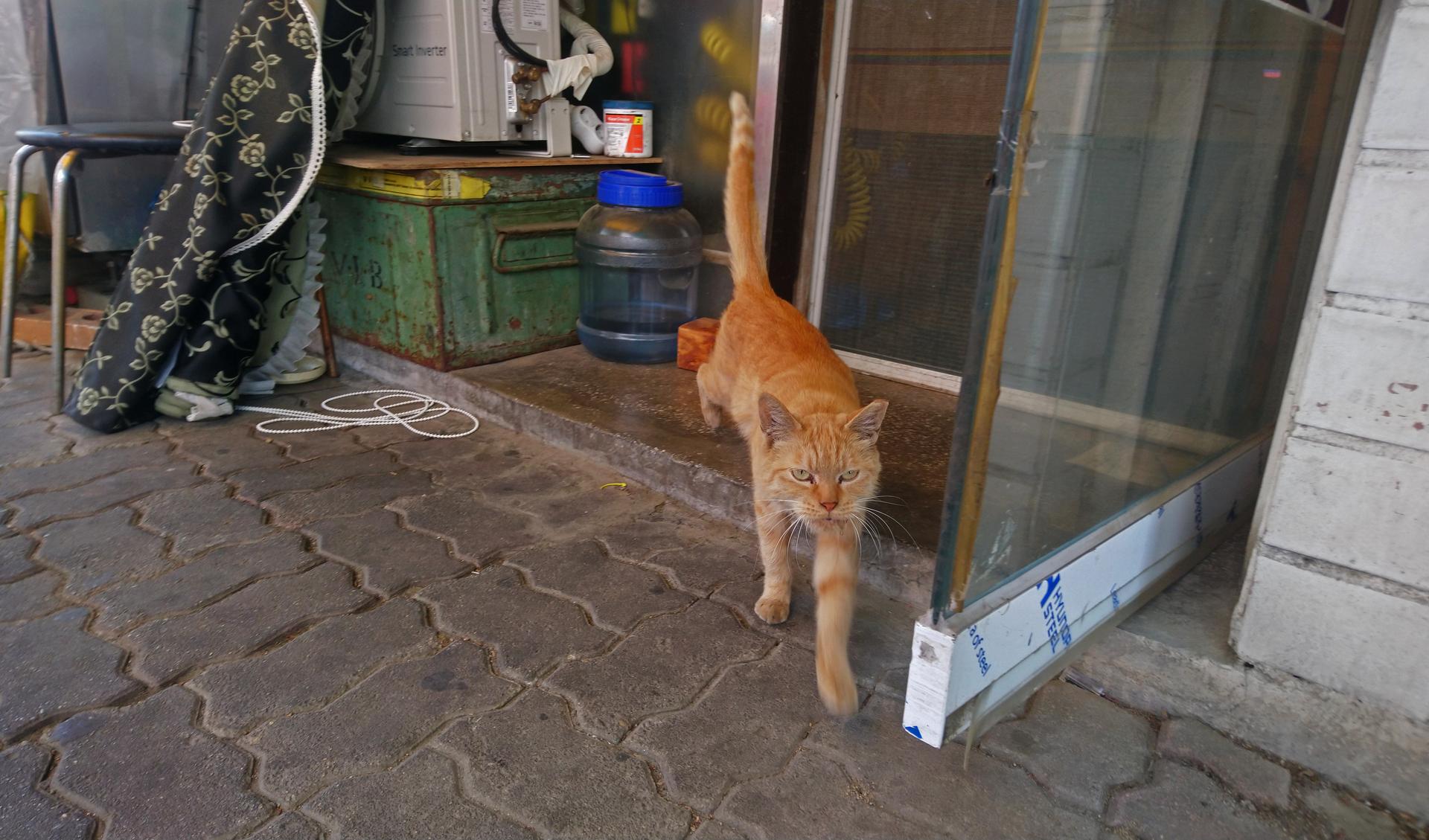
“The thing is, all other rescue organizations are so busy and there really aren’t that many,” she said.
Powless is at “maximum capacity” with her shelter of 26, but her hopes are still high that the South Korean government will soon do more to protect its street cats, whether that be microchipping them, feeding them or investing in trap, neuter and return programs.
“It’s good that the Seoul government is trying to do something. There’s a lot of things we could do,” she said. “Already, I think perceptions have changed a lot. I don’t want to be too negative about South Korea — there’s lots of cat moms and cat dads out there changing people’s minds.”
